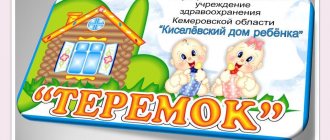The professional standard of a speech therapist teacher determines the most important characteristics of a specialist’s activity: his job duties, the skill levels required to perform them, as well as other aspects. From the beginning of 2021, the use of professional standards is mandatory for budgetary and state-controlled organizations, but even in the private sector their use provides a number of advantages.
- Form and sample
- Free download
- Online viewing
- Expert tested
FILES
Main aspects of the application of professional standards
The procedure for the development and application of professional standards is determined by the following acts:
- Adopted in 2015, 122-FZ, which lists the main provisions for their use.
- Articles 195.2 and 195.3 were introduced into the Labor Code on the basis of this Federal Law, which established the mandatory use of professional standards for professions whose qualification parameters are given in the current legislation.
- Government Resolution No. 584 adopted in 2021, which states that professional standards are mandatory for budgetary institutions, as well as organizations that are 50% or more controlled by the state.
As can be seen, in the private sector, the application of professional standards occurs on a voluntary basis. In the business sphere they are used for:
- Documenting qualification parameters (education, work experience, specialized and general skills). This allows not only to correctly screen out applicants with inappropriate qualifications, but also to require employees to undergo additional training.
- Changes in the organizational structure, which are carried out by renaming positions, changes in staffing, and eliminating non-core responsibilities.
- Resolving disputes with representatives of regulatory authorities (Federal Tax Service, Rostrud, etc.) during their inspections of documentation.
- Introducing current changes to the organization’s documents regulating personnel relations: job descriptions, employment contracts, etc.
Attention! So far, in the field of personnel relations, all-Russian directories of professions (EKS and ETKS) remain relevant. In the future, it is planned to integrate them into a unified system of labor documentation, but for now the employer can use them along with professional standards.
Nuances of the professional standard of a speech therapist teacher
Among the current documents, professional standard 01.002, which describes the characteristics of a teacher-psychologist, is closest to the position of a speech therapist teacher. It includes four parts.
The introductory part is devoted to the general characteristics of the profession. The groups and type of activity according to the codes of the OKVED and OKZ reference books are given, and professional goals are also described.
The second part describes in general form the two main job functions and their 12 components. The main ones include supporting the educational process and providing professional assistance to students with difficulties in mastering the material. The components include, for example, counseling students, their specialized diagnostics, etc.
The third part is devoted to a more detailed explanation of the main labor functions and their components. This description contains:
- Origin of the function and listing of positions of specialists ready to perform it.
- Requirements for their level of education and experience.
- Additional criteria for their admission to work (no criminal record, successfully passed a medical examination, etc.).
Each component of the work function is described below. Specific actions and the knowledge and skills required for them are listed. Thus, correctional work with students includes:
- Labor activities: maintaining specialized documentation, developing plans, etc.
- Practical skills in the areas of developing correction programs, conducting classes with students, etc.
- Theoretical knowledge in the areas of modern popular theories, practices of applying methods of working with students and other professional aspects.
The fourth part lists those responsible for developing the document.
Attention! As you can see, these sections do not address many aspects of a specialist’s activities: his rights, the procedure for hiring and replacement, criteria for liability for violations, etc. To describe these points, it is recommended to use job descriptions, employment contracts and other documentation.
Documentation and long-term plans for correctional pedagogical work
Annual work plan for the 2012-2013 academic year.
Annual plan for speech correction work for the 2013–2014 academic year
Annual report on the work of a speech therapist teacher for the 2013–2014 academic year
Annual work plan at the speech therapy center of the MBOU DOD TsDOD School of Early Development "Preschool" for the 2013-2014 academic year
Logopoint documentation
Speech therapist documents for children in preschool educational institutions
Documentation in a preschool educational institution
Individual logopath support card
Individual correctional and developmental program for a child
Individual route of correctional and developmental work with a child
Individual work plan for sound pronunciation correction
Map of the dynamics of development of preschool educational institutions
Speech therapy examination of children
Methodical atlas of speech therapy room
Report on the work done in the 2012-2013 academic year in the speech therapy group
Evaluation of the results of defectological examination of children
Long-term planning for overcoming ODD in first grade (1st period).
Long-term planning of work with first-graders to overcome General Speech Underdevelopment (GSD) at the school speech center.
Passport of the speech therapy office
Long-term plan for working with children of the 5th year of life with ODD
Long-term planning of work with parents
Advance planning for parent consultations
Long-term plan for correctional and pedagogical work for September-November
Long-term plan for correctional and pedagogical work for December-February
Long-term plan for correctional and pedagogical work for March-May
Plan for work between teachers and parents in a secondary school
Planning in 1st grade, pronunciation of whistling sounds
Planning in 1st grade, pronunciation of hissing sounds
Planning in 3rd grade, pronunciation of sonorous sounds (P)
Regulations on the speech therapy room
Protocol for examining the level of speech development
Speech card for children with SDD studying in a speech center
Speech card for children with FFDD, FFDD studying in a speech center
Certificate of speech therapy examination of first-graders for the 2013-2014 academic year
Thematic plan for correctional and speech therapy work with children
Thematic planning of correctional classes in 1st grade. General speech underdevelopment.
Cyclogram of the work of preschool educational institutions for the 2013-2014 academic year
Electronic attendance register in correctional and developmental activities
Application of the professional standard in practice
The introduction of professional standards into office work practice is based on a certain algorithm:
- Studying the industry characteristics of the employer’s activities using OKVED codes.
- Analysis of available positions and the range of responsibilities performed by current specialists. This analysis is based on the staffing table, job descriptions and other personnel documentation.
- Studying existing professional standards that suit the profile of the organization and its employees.
- Changing labor documentation based on the provisions of the found professional standards, as well as relevant sections of the EKS and ETKS.
- Carrying out the necessary changes in the organizational structure of the organization (redistribution of responsibilities, introduction of new positions, etc.).
After completing a set of these measures, based on the changes made, the employer receives the opportunity to:
- Present qualified requirements to candidates for positions.
- Oblige existing employees to improve their professional level to acquire the necessary skills and abilities.
- Offer low-skilled employees to move to less significant positions using Article 72.1 of the Labor Code of the Russian Federation.
Attention! If the organization employs many employees in various positions, then it is recommended that the implementation of professional standards be carried out on the basis of regulations that establish responsible persons, the procedure for implementation, deadlines and other parameters.
Sample job description for a speech therapist
General section
- A candidate for the position of speech therapist must meet the following criteria:
- higher education in a pedagogical profile in the field of “Speech Therapy” or “Defectology”;
- successfully completed medical examination;
- work experience in the profile of at least one year.
- The speech therapist reports to the head of the institution.
- A speech therapist is accepted into his position, as well as dismissed from it, by order of the head of the institution.
- In the absence of a speech therapist (vacation, treatment, etc.), his functions are transferred for a certain period of time to another specialist determined by the head of the institution.
- A specialist in this position must understand:
- specialized legislative and regulatory framework;
- industry rules, including ethics;
- standards of interaction with visitors, including in terms of receiving and processing information from patients with speech impairments;
- analysis of data on visitors based on relevant medical documents;
- methods of diagnosis when working with specialized visitors;
- methods for drawing up individual recommendations for correcting identified defects;
- age and gender characteristics of visitors that influence their speech;
- methods of interaction in work on visitors with other specialists;
- standards for working with relevant documentation;
- theoretical and practical standards of defectology;
- methods of prevention and correction of speech defects;
- technical and fire safety standards;
- sanitary and hygienic standards.
- The speech therapist is guided by:
- the current legal framework;
- industry regulations;
- documents of the institution;
- the contents of this instruction.
Functions
The speech therapist is responsible for the following range of tasks:
- Consulting visitors, as well as their legal representatives, within their competence.
- Filling out the necessary profile documentation.
- Collaborate with other professionals to assist visitors.
- Receiving and processing information on patients.
- Establishing and maintaining contacts with patients who have speech problems.
- Conducting primary and secondary examinations of visitors, as well as referring them to other specialists for in-depth research.
- Making a diagnosis for visitors, justifying it and documenting it.
- Identification of factors influencing defects in patients.
- Selection and justification of rehabilitation measures, as well as their possible adjustment if necessary.
- Compliance with labor protection, sanitation, and fire safety standards in your premises.
- High-quality use of protective clothing and tools provided by the institution.
Responsibility
A speech therapist may be responsible in the following situations:
- For material damage received by the employer through his fault - within the limits given in the relevant legislation.
- For improper performance of one’s duties - within the limits specified in the relevant articles of labor legislation.
- For violations of current regulations and laws committed during the performance of core functions - within the limits set forth in the relevant articles of current legislation.
Rights
The speech therapist is endowed with the following set of rights:
- Propose measures on possible ways to improve labor procedures within the boundaries of their responsibility.
- Participate in meetings of the institution’s labor staff.
- Require management to create and maintain conditions necessary for the quality performance of professional duties.
- Get acquainted with draft documents affecting the scope of professional activity.
- Receive from other employees of the institution data required in their work activities.
Working conditions
Features of the work activity of a speech therapist are as follows:
- A specialist can be involved in work on holidays and weekends, receiving appropriate additional payments from the employer.
- A specialist must undergo specialized advanced training courses (at least once every five years).
- A specialist can go to congresses and conferences in his field of study in the manner specified in the relevant documents of the institution.
- During the period of work, the specialist is provided with special clothing and the necessary tools at the expense of the institution.
- The specialist undergoes regular medical examinations in the manner prescribed in the relevant documents of the institution.
- The specialist undergoes regular re-certification in the manner specified in the institution’s documents.


